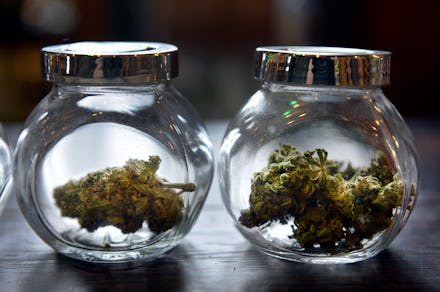New Numbers Show Legal Weed in Colorado Literally Couldn't Be Going Better

Marijuana retailers in Colorado pulled in nearly $700 million in 2014, with new projections suggesting the state's weed industry will be worth more than $1 billion by the end of this year, according to estimates first reported in the Washington Post. The stunning numbers provide further evidence that the state's decision to end marijuana prohibition has become a roaring success.
These new figures account for all legal purchases. Revenues in 2014 were pretty evenly split between proceeds from the sale of medical marijuana, which accounted for $385.9 million, and recreational pot, which fetched $313.2 million from the newly open market, according to the Cannabist.
But of all the small businesses and dispensaries that popped up over the past 12 months, none have seen a higher return than the state government. The massive influx of new tax money — $44 million from recreational pot and a whole lot more from a generally improving economy — means Colorado will receive every cent of its estimated tax income and be compelled by law to shell out the surplus to taxpayers.
In the graph below, you can see how much marijuana tax revenue increased month over month last year:
Driving the increase: The spike in revenue from January to December is closely tied to a corresponding spike in recreational purchases, which are taxed at a much higher rate than medical sales. That discrepancy in tax policy, as the Brookings Institution's John Hudak told the Washington Post in September, has been among the reasons for the recreational market's consistent but slow growth.
But there were psychological hurdles too.
The growth in legal spending "might reflect a relaxation of state residents where people are coming around and saying, 'OK, this is real, this is legit and I'm not going to get arrested for it,'" Hudak told the Washington Post.
Another speed bump was written into the new law. From January through the end of June, only previously existing medical dispensaries (made legal by a November 2000 referendum) were allowed to apply for recreational licenses. Not surprisingly, recreational sales and accompanying tax revenue grew steadily throughout the second half of the year. By December, Colorado's recreational sales had come to account for more than half of all marijuana purchases, up from less than 40% in January.
With dozens of states now locked in debates over the potential for legalization, news of Colorado's public and private windfall should add strength to the groups arguing to end prohibition. Because whatever their personal feelings on marijuana, this kind of green is very difficult for any American politician to turn down.